BRICS: The new Syndicate
This bi-annual report includes features written exclusively (unless mentioned otherwise) for Gateway House: Indian Council on Global Relations by various contributors, and Gateway House staff, from January-July 2012.
 Courtesy:
Courtesy:
This bi-annual report includes features written exclusively (unless mentioned otherwise) for Gateway House: Indian Council on Global Relations by various contributors, and Gateway House staff, from January-July 2012.
 Courtesy: South African Foreign Policy Initiative
Courtesy: South African Foreign Policy Initiative
South African Foreign Policy Initiative republished Gateway House's report, titled 'BRICS: The new Syndicate.' This bi-annual report includes features written exclusively for Gateway House: Indian Council on Global Relations by various contributors, and Gateway House staff, from January-July 2012.
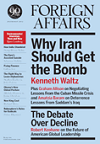 Courtesy: Foreign Affairs
Courtesy: Foreign Affairs
To leave behind a stable government in Afghanistan in 2014, the U.S. needs to work towards electoral reforms, negotiations with the Taliban, and a regional settlement involving Pakistan.
 Courtesy: Open Democracy
Courtesy: Open Democracy
The NATO withdrawal from Afghanistan in 2014 should be done tactically so that it doesn't destabilize Pakistan. Despite having accepted Pakistani help in the past, the Taliban might empathize with Pakistani Pashtuns and spread the very secessionist tendencies which Pakistan’s Afghan policy was designed to prevent.
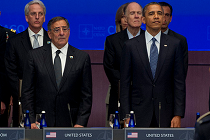 Courtesy: Secretary of Defense/Flickr
Courtesy: Secretary of Defense/Flickr
Pakistan’s refusal to re-open NATO supply routes into Afghanistan has made the country an instant pariah in the U.S. at the NATO Summit. The communiqué released confirms a withdrawal of 130,000 troops by as early as mid-2013. Can the remaining soldiers help maintain peace when a force much larger could not?
What are the implications for India if Iran is attacked? How effective has the response been by gulf nations to their own protests? Ambassador Talmiz Ahmad, India’s former Ambassador to Saudi Arabia, discusses the dynamics of West Asia with Gateway House’s Alisha Pinto and Azadeh Pourzand.
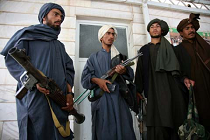 Courtesy: isafmedia/Flickr
Courtesy: isafmedia/Flickr
With the prospect of a new Taliban office in Qatar, who would go to the negotiating table from a position of strength, the Taliban or the Afghan government? And what do Afghans think of the contentious TAPI pipeline? Dr. Roashan gives us an Afghani perspective of the geopolitics surrounding the war-torn nation.
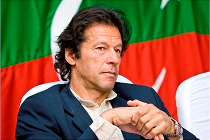 Courtesy: Jawad Zakariya/WikimediaCommons
Courtesy: Jawad Zakariya/WikimediaCommons
Imran Khan, leader of the Pakistani political party Tehreek-e-Insaaf, means well, and has the support of many in his country. But without any solid reforms manifesto, and almost no one in his party to implement his plan, what really are his chances in the upcoming elections?
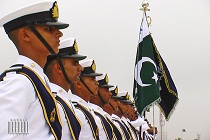 Courtesy: Kash_if/Flickr
Courtesy: Kash_if/Flickr
In the aftermath of the Mumbai attacks, the Pakstani deep state role was highlighted. The U.S. has come to realise this reality too. Bilateral information sharing could prove to be vital to combat terrorism - both regionally and globally.
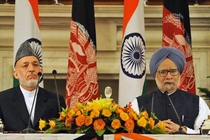 Courtesy: PMO
Courtesy: PMO
NATO’s poor strategy in Afghanistan has failed to quell the Taliban. Now, India will begin to train the Afghani military, and has proven with its light force tactics in Kashmir that it is better suited for the role than NATO forces.